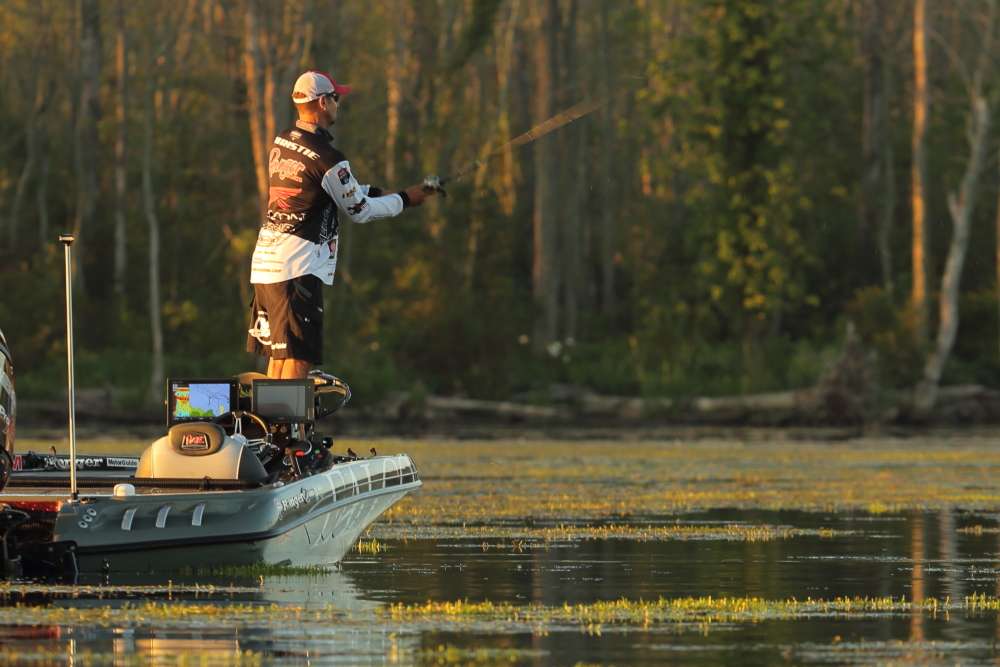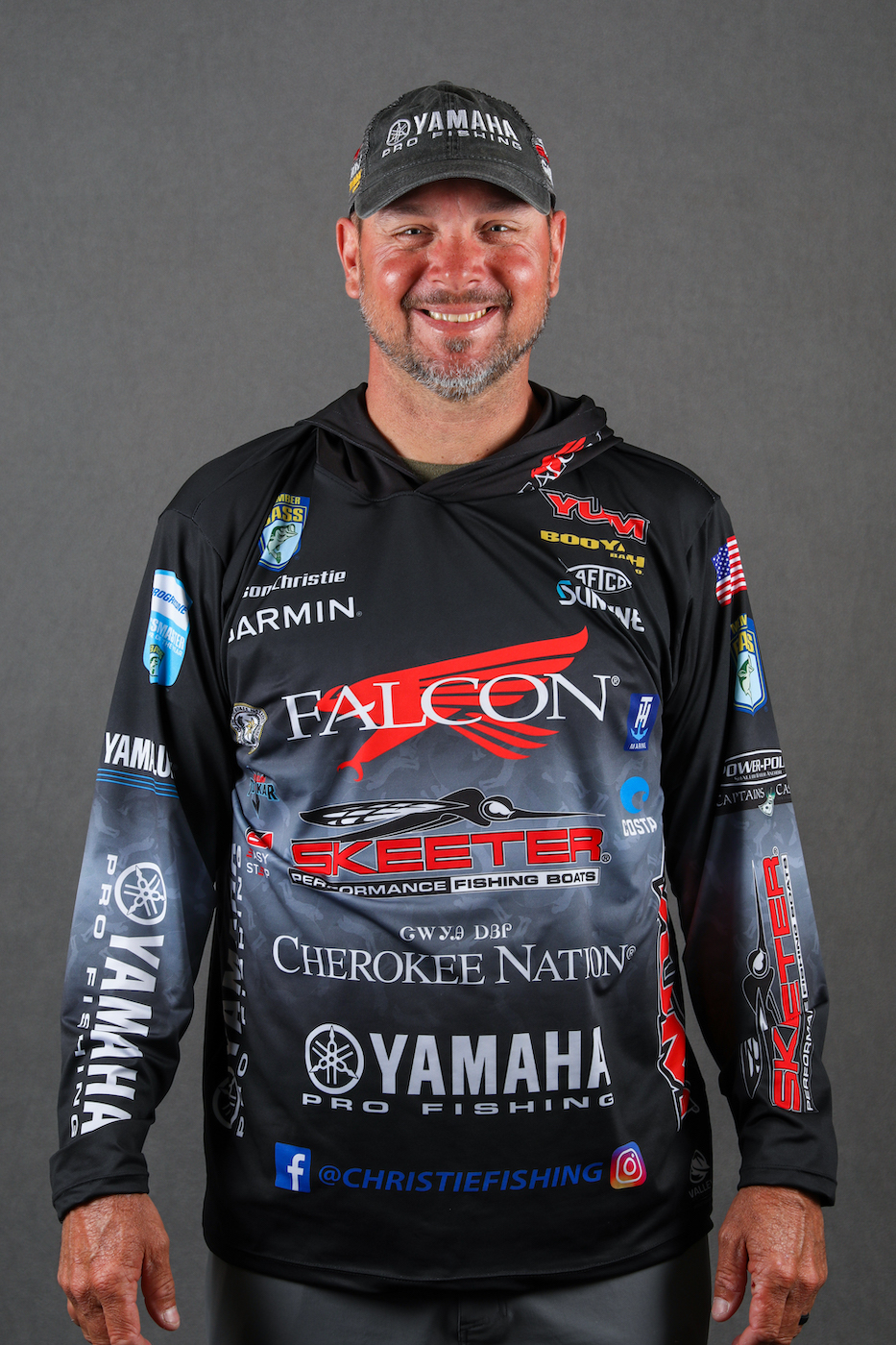
Last week’s Elite Series event on the Potomac River reinforced an odd pattern that’s pretty frustrating on the front end, but gratifying on the back end. Basically, the tournaments where I’ve won or I’ve had a strong finish, it always seems that I had a really bad practice.
I had a good tournament on the Potomac, but I honestly had no idea I was going to finish second. I would easily put my practice in the top three worst I’ve ever had.
I compare it to the 2014 Elite event on the Delaware River. I had a terrible practice, but I ended up finishing third.
I’ll put it this way, if someone would have offered me a $10,000 finish after my Potomac practice, I probably would have taken it. I’m glad I didn’t because coming off a top 20 at Cayuga, this gives me a lot of momentum heading into the final event at La Crosse, Wisc.
The other thing that’s interesting is how, in the tournaments where I do well or win, I find all my fish in one little area. That’s what I did on the Potomac — I located a big grass mat in a creek upriver from our takeoff site in Marbury, Maryland.
The mat was about 1/3-mile long with 1-2 feet of water around the edge at low tide and 3-4 on high tide. I got nine bites there in two 13-hour practice days and one 9-hour day, but most of the bites were in different places in the mat, so I believed it had the potential to be one of those area where I could do well.
Despite this potential, Day 1 of the tournament was one of the hardest days I’ve ever fished. I went to the waypoint where I had two practice bites and I sat there with my Power Poles down for two hours because I had nowhere else to go.
I got one bite in two hours, so I moved up 20 yards and got three more bites in another two hours. At that point, I was glad to have four, but then I moved up another 20 yards, fished two more hours and got my fifth fish.
You might wonder why I sat there so long on that one mat. Well, I believed I had the right place, but I just had to wait for the right tide stage. I’ll admit, it was a crazy day; I didn’t move 50 yards in five hours.
But here’s something worth noting: It took me 21 minutes to start at the from of the boat and cast in a complete circle all around the boat. I timed myself because I knew if the fish were there and the tide wasn’t right, I didn’t want them to see my bait too often.
Sometimes, if they fish aren’t feeding, buy they see your bait too many times, the won’t bite once the tide gets right for them to feed. I wanted to know how much of a break I was giving them, so I could avoid burning any of the mat before the tide got right.
the morning of Day 2, I came into my area and found three boats sitting on my spot. I’ll be honest, that was frustrating, but in the end, it actually worked to my advantage because it made me look for another spot and I found something even better at the mat’s opposite end.
I ended up fishing most of Days 2, 3 and 4 on that spot and I caught 18 of my 20 fish on a Booyah Pad Crasher frog in the sunburn color. The water was clear and there were a lot of bream bedding, so I wanted a color that would stand out and match the forage.
I caught one of my fish skipping a dock and I caught the other one on a green pumpkin/purple YUM Bad Mama Texas rigged with a 3/8-ounce weight. That last fish was the most unbelievable thing — I actually sight fished it. That fish was cruising down the outside edge of the grass mat, I pitched my bait and the fish ate it.
I would have liked to win this event, but a second-place finish puts me in good shape for next year’s Bassmaster Classic. I have to catch a few fish at La Crosse, but I don’t have to set the world on fire to make the Classic cut.
When it comes down to that last tournament of the season and you really have to catch ‘em, that puts a lot of pressure on you. It kind of boils your season down to one event and that’s not fun.
Now, I can just go up to La Crosse and have fun. I’ll take it seriously, but I now have the advantage of being able to fish loose and if I see the opportunity to swing for the fences, I’ll take it.
All of these things are very important, but I got a good shot of perspective when I had the honor of participating in a Wounded Warriors fishing tournament the day after the Potomac event. Even before I was contacted about doing this, I had a lot of respect for our servicemen and women, but after spending a day getting to know one of our soldiers and learning about what he had experienced, I now have an even greater level of respect and appreciation.
After listening to his story and hearing his attitude toward his fellow servicemen and toward his country, I can say that I’ve never had someone in my boat that I’ve respected more.
I’d look back at him fishing and having a good time and it made me think that if it weren’t for guys like him, I probably wouldn’t be doing what I do for a living. I think we owe the world to these guys.
Staying an extra day and taking them fishing; that’s nothing compared to what they’ve done for all of us.

